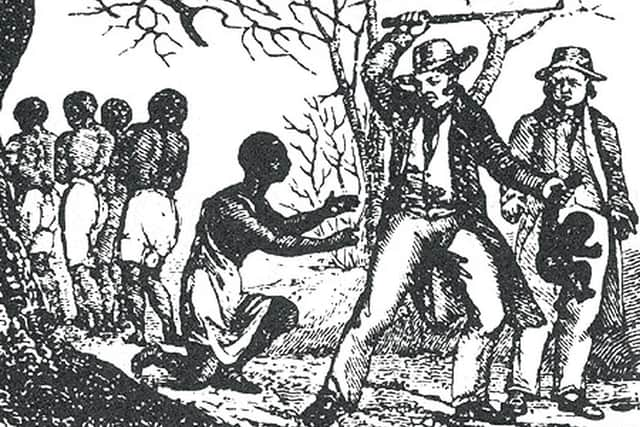From age of slavery to the present day, it’s the power of money that decides Scotland’s land ownership – Brian Wilson


Unsurprisingly, both our indigenous gentry and their successors were up to their eyes in it.
Calum MacLeod, Community Land Scotland’s policy director, said the report reminded us how “slavery-derived wealth helped sustain and shape the pattern of monopoly private land ownership… that persists to this day”. The words “persists to this day” should concern us.
Advertisement
Hide AdAdvertisement
Hide AdEstate boundaries were defined centuries ago. Often, the convenience of those acquiring them was in minimising the human presence. Great wildernesses were created. And in due course, these private kingdoms were handed down or sold on.
Essentially, nothing has changed. When estates change hands, the only criterion for acquisition is wealth. Nobody asks purchasers what they are going to do with them or where the money came from. At no point is there any test of public interest or need.
Two decades ago, some progress was made in redressing history, mainly in the Western Isles. Hence the existence of Community Land Scotland. But by and large, the land lottery continues. Perhaps in 200 years, someone will write a report on it.
Pressures on rural housing are being exacerbated by the pandemic with demand for scenic bolt-holes inflating prices further beyond local reach. The future of fragile peripheral communities is at stake and land ownership is crucial to outcomes.
If the will existed in Edinburgh, radical political intervention could ensure that public policy trumps the power of money. I fear that is far beyond the vision of those who talk a lot about Scotland but ignore its most basic asset.
A message from the Editor:
Thank you for reading this article. We're more reliant on your support than ever as the shift in consumer habits brought about by coronavirus impacts our advertisers.
If you haven't already, please consider supporting our trusted, fact-checked journalism by taking out a digital subscription.
Comments
Want to join the conversation? Please or to comment on this article.